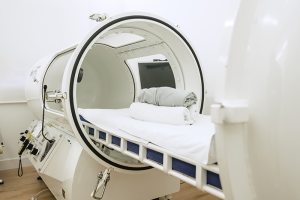Joint Commission updates Sentinel Events data for 2016
Joint Commission updates Sentinel Event data for 2016
The Joint Commission released its Sentinel Events report tracking through to the second quarter of 2016. Causes of sentinel events include falls, fires, ventilator death and utility system failure among other occurrences.
Nearly 70 percent of sentinel events reported to the Joint Commission from 2005 to today occurred in hospital settings. Another 10 percent took place in psychiatric hospitals. Outcomes of reported incidents include patient death, permanent or temporary harm, psychological impact and other adverse events.
“This sentinel event-related data, reported to the Joint Commission from our accredited organizations, demonstrates the need of the Joint Commission and accredited health care organizations to continue to address these serious adverse events,” the organization states. “This data also supports the importance of establishing National Patient Safety Goals and focusing our energies on addressing serious errors within health care organizations. By identifying causes, trends, settings and outcomes of sentinel events, the Joint Commission can provide critical information in the prevention of sentinel events to accredited health care organizations and the public.”
FDA issues draft guidance on insanitary conditions at compounding facilities
The Food and Drug Administration (FDA) issued draft guidance for pharmacies, physician offices and outsourcing facilities that compound or repackage drugs or mix, dilute or repackage biological products.
The guidance provides examples of insanitary conditions under the Federal Food, Drug, and Cosmetic Act, and recommended procedures to avoid or correct insanitary conditions in compounding facilities.
The FDA reports that it has identified insanitary conditions at many of the compounding facilities it has inspected, such as dog beds and dog hairs in close proximity to a sterile compounding room and dead insects in ceilings. Drug products that were contaminated because they were compounded under insanitary conditions have caused numerous infections and deaths, the FDA states. In 2012, a fungal meningitis outbreak, which resulted in more than 60 deaths and 750 cases of infection, was associated with contaminated drug products produced by a compounding facility.
FDA is accepting comments on the guidance.
Florida cases of locally acquired Zika grow to 14
The Florida Department of Health (Florida Health) has identified 10 additional people in Florida with the Zika virus who likely contracted it through a mosquito bite. This brings the total number of people with locally transmitted Zika to 14. The department believes that active transmissions of the Zika virus are still only occurring in one small area in Miami-Dade County, as it remains the only area of the state where it has confirmed there are ongoing local transmissions of Zika.
Among the 10 new individuals announced recently, six are asymptomatic and were identified from the door-to-door community survey that Florida Health is conducting.
Florida Governor Rick Scott has called upon the Centers for Disease Control and Prevention (CDC) to activate a CDC Emergency Response Team to assist Florida Health and other partners in their investigation, sample collection and mosquito-control efforts.
ASHE accepting nominations for Excellence in Health Care Facility Management
Applications for the 2016 Excellence in Health Care Facility Management Award are now being accepted. The award, sponsored by Trane, honors individuals and teams who exemplify how facility managers and caregivers join together to identify an issue and create a proactive and viable approach to attaining resolutions that optimize the physical environment and improve patient care.
ASHE recognized St. Joseph’s Hospital in Tampa, Fla., as last year’s winner for its commitment to reducing slips, trips and falls in common areas.
CareFusion recalls AVEA ventilator due to an electrical Issue
CareFusion has recalled its AVEA ventilator because of a faulty fuse on the ventilator’s alarm board, which may cause it to unexpectedly shut down and can lead to serious harm, including death.
CareFusion sent a Field Safety Notice to affected health care facilities May 17. The Food and Drug Administration has classified this is a Class I recall, which is its most serious type.
CDC funds $67 million to prevent health care-associated infections
The Centers for Disease Control and Prevention is providing $67 million to help health departments nationwide tackle antibiotic resistance and other patient safety threats, including health care-associated infections. The new funding for antibiotic resistance also supports seven new regional laboratories with specialized capabilities allowing rapid detection and identification of emerging antibiotic-resistant threats. CDC states the funding will dramatically expand existing capabilities to track infections in health care settings, protect patients through targeted prevention and increase coordination across medical care.
FDA releases final guidance on adaptive medical device study designs
The Food and Drug Administration (FDA) has released a final guidance document that explains the benefits, risks, planning and implementation of adaptive clinical study designs used in medical device development. These study designs — which can change as the data roll in — can be more efficient than traditional, fixed clinical designs; can provide more responsive treatment for enrolled patients; and can protect the welfare of the test subjects better, according to the guidance document.
“Overall, adaptive designs may enable more timely device development decision-making and, therefore, more efficient investment in resources in a clinical study,” the FDA wrote in its guidance. “From an ethical standpoint, adaptive designs may optimize the treatment of subjects enrolled in the study and safeguard their welfare from ineffective or unsafe treatments and interventions at the earliest possible stage.”




